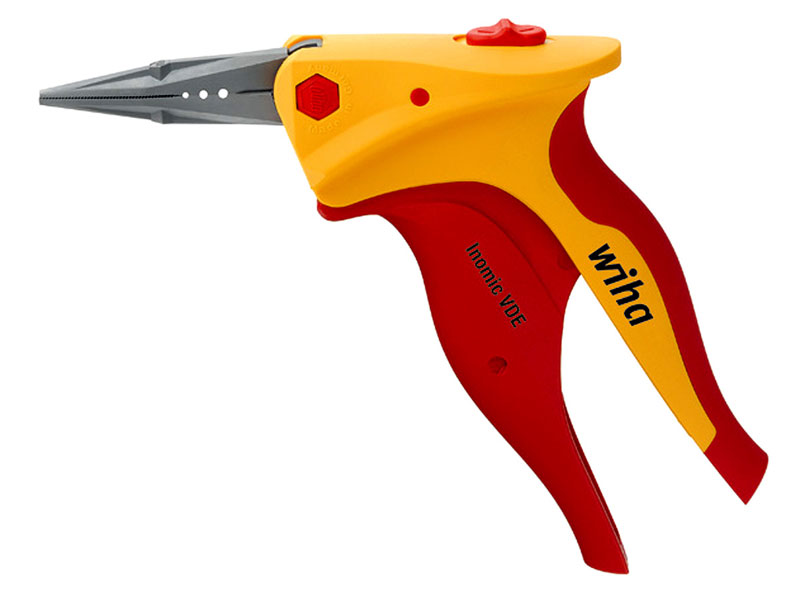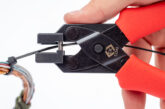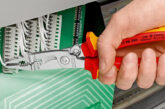
The hand tools you use daily can have a big impact on your health and safety in the long-term – and we’re not just talking prevention against electric shocks. Allan Loxton, Brand Manager at Hyde, explains the benefits of ergonomics in hand tool design.
Considering how much of an electrician’s day is spent with a screwdriver or pair of pliers in hand, it is surprising that not a great deal of attention is given to how comfortable such hand tools should be to use. When Wiha talks about carrying out a quality job and investing in quality tools in order to do so, it is usually more in reference to the reliability and longevity of such equipment.
User comfort is a major factor when it comes to choosing tools, yet it is one of those things that you don’t fully appreciate until it is not there. Cheaper hand tools, for example, are less likely to be ergonomically designed, while paying that little bit more will get you soft grip handles on tools such as screwdrivers and pliers, which is particularly helpful in avoiding painful blisters and general discomfort.
Tightening up on comfort
Simply choosing a VDE approved screwdriver or pair of pliers to guard against electric shocks isn’t enough to protect your health and safety while at work. Tightening and untightening screws can cause enormous strain on your hands and wrists, and can even lead to costly time off work in the worst cases. This is why an ergonomically designed screwdriver isn’t just a marketing gimmick, it can help you work more efficiently and is good for your health. There are screwdrivers on the market that claim to need as much as 40% less force than a standard screwdriver, which is considerable. The SoftFinish screwdriver from Wiha, for example, has an optimised handle diameter to enable a higher torque with less user fatigue, which all adds up to less cramp and fewer blisters if you are faced with countless screws to fasten.
Medically approved
Wiha fastening tools feature an ergonomic handle  size, aiming to ensure more comfortable, longer and above all pain-free work for users. This handle design was put under scrupulous testing and anaylsis by a team of doctors and professional therapists who awarded the brand’s SoftFinish, SoftFinish electric, MicroFinish and SoftFinish ESD handles the AGR (Aktion Gesunder Rücken e.V. – German Campaign for Healthier Backs) seal of distinction.
size, aiming to ensure more comfortable, longer and above all pain-free work for users. This handle design was put under scrupulous testing and anaylsis by a team of doctors and professional therapists who awarded the brand’s SoftFinish, SoftFinish electric, MicroFinish and SoftFinish ESD handles the AGR (Aktion Gesunder Rücken e.V. – German Campaign for Healthier Backs) seal of distinction.
The AGR promotes and researches the prevention of back pain, offering recommendations on products that help to prevent musculoskeletal disorders and back pain. With Wiha, the committee praised the fact that, unlike standard tools, the small handles fit optimally in the hand for the highest level of precision and control, while the large handles are ideal for powerful fastening with the integrated hard and soft zones. The health professionals concluded that the intelligent concept with four screwdriver handle sizes and lengths optimally adapted to the specific fastening or task helps users to minimise or even prevent musculoskeletal disorders and pain in joints and muscles.
Less force, less pain, more gain
This ergonomically designed handle is a standard feature on all Wiha fastening tools, including its SoftFinish, SoftFinish electric, SoftFinish ESD and MicroFinish ranges, enabling electricians to work safely and without compromising their health throughout the day. The optimal power transmission of the handle, specifically adapted to the different fastenings, offers comfortable and extremely efficient work for users, resulting in less force, less pain, but greater results and improved health.
Investing in such technology, rather than simply picking up a standard hand tool next time you pop to the merchants’, could be a wise choice in the long-run. The tools electricians use can go much further than simply preventing a few blisters, they can help reduce the amount of sick leave required for work related illnesses and damage to joints, muscles and tendons making it definitely worth thinking about next time you’re in the market for a new screwdriver.








